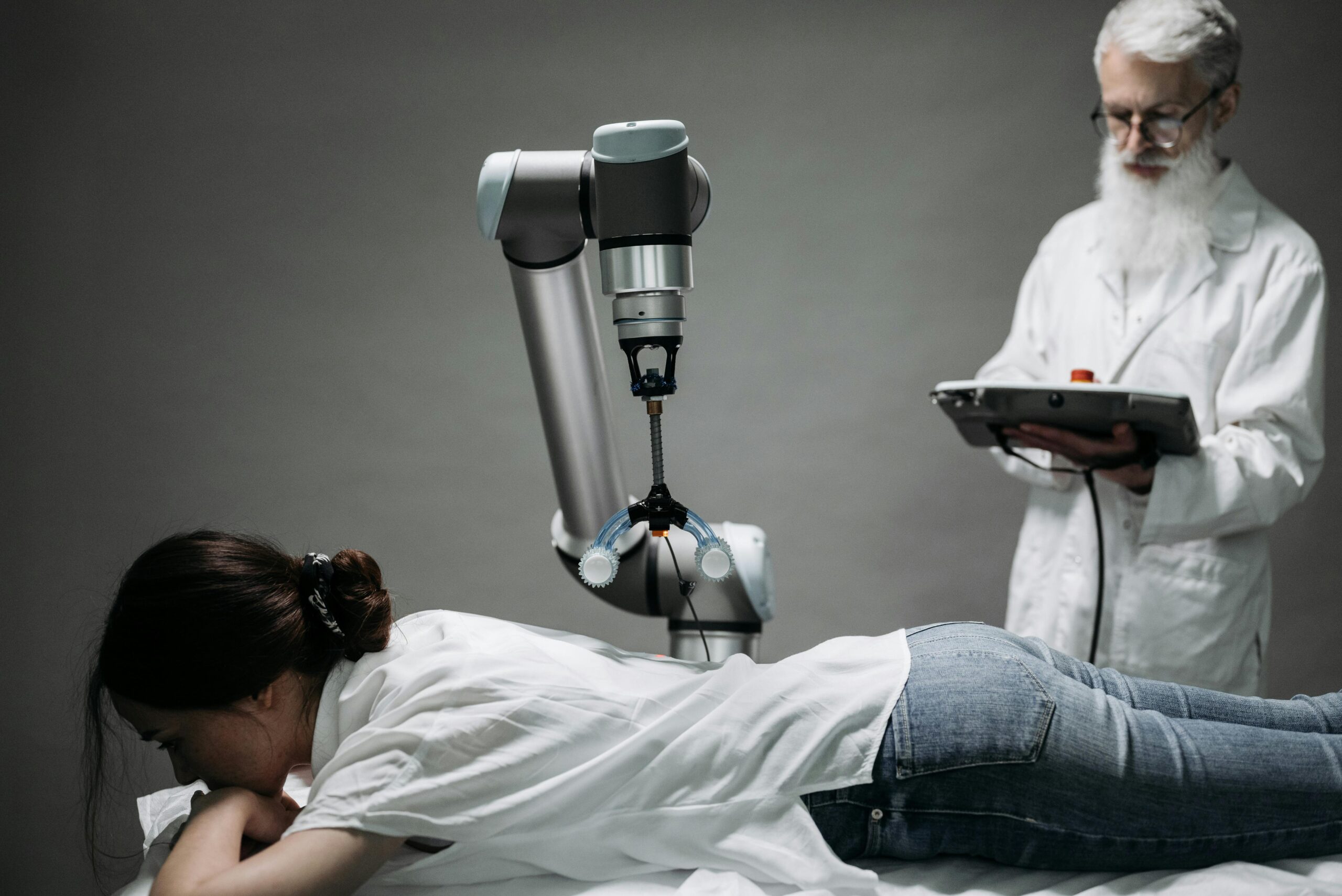
In recent years, Artificial Intelligence (AI) has emerged as one of the most transformative forces in healthcare. From improving diagnostic accuracy to optimizing hospital operations and enabling personalized medicine, AI is redefining how we prevent, diagnose, treat, and manage diseases. As healthcare continues to evolve, AI is not just a futuristic concept—it’s becoming a vital tool in improving patient outcomes and healthcare delivery worldwide.
What is AI in Healthcare?
Artificial Intelligence refers to the use of advanced algorithms and machine learning (ML) models to analyze complex medical data. In healthcare, AI systems can learn from historical data, recognize patterns, and make informed predictions or decisions—often with a speed and accuracy beyond human capability.
Key Applications of AI in Healthcare
1. Accurate and Early Diagnosis
AI-powered tools are enhancing diagnostic precision by analyzing imaging scans, pathology reports, and patient data faster than traditional methods.
- Example: AI algorithms like those used in radiology can detect early signs of cancer, tuberculosis, or neurological disorders from X-rays and MRIs with high accuracy.
2. Personalized Treatment Plans
Using patient history, genetic information, and real-time health data, AI can help tailor treatments to the individual’s unique needs.
- Example: AI systems can recommend specific drug therapies or dosages for cancer or diabetes patients based on molecular data and patient responses.
3. Virtual Health Assistants & Chatbots
AI-powered chatbots and virtual assistants are helping reduce the burden on healthcare staff by handling routine queries, appointment bookings, medication reminders, and more.
- Example: Virtual nurse apps assist chronic patients with regular follow-ups and guidance on lifestyle changes.
4. Drug Discovery and Development
AI accelerates the drug development process by predicting how molecules will interact, identifying potential compounds, and simulating clinical trials.
- Example: During the COVID-19 pandemic, AI was used to repurpose existing drugs and speed up vaccine research.
5. Predictive Analytics for Disease Prevention
By analyzing trends in electronic health records (EHRs), wearable devices, and lifestyle data, AI can predict the likelihood of disease and prompt early interventions.
- Example: AI models can flag high-risk patients for heart attacks or diabetic complications even before symptoms appear.
6. Operational Efficiency in Healthcare Systems
Hospitals use AI to optimize scheduling, manage resources, predict patient admissions, and reduce wait times—improving the overall patient experience.
- Example: AI-powered hospital management systems improve bed utilization and staff allocation.
Benefits of AI in Healthcare
- Improved Diagnostic Accuracy
Reduces human error and supports better decision-making. - Time and Cost Efficiency
Automates repetitive tasks, allowing healthcare professionals to focus on patient care. - Enhanced Patient Engagement
AI tools empower patients with real-time health information and support. - Better Outcomes Through Data-Driven Insights
AI learns from large volumes of patient data to recommend evidence-based interventions.
Challenges and Considerations
While AI holds immense potential, there are several challenges that healthcare systems must navigate:
- Data Privacy and Security
Protecting patient data is crucial when using AI systems. - Ethical Concerns
Transparency and fairness must be ensured in AI decision-making. - Integration with Existing Systems
Compatibility and training are essential for smooth adoption. - Human Oversight
AI should assist—not replace—medical professionals. Final decisions must remain in the hands of qualified healthcare providers.
The Future of AI in Healthcare
The integration of AI into healthcare is still in its early stages, but its future is incredibly promising. With continued advancements in machine learning, natural language processing, and big data analytics, AI will increasingly support personalized care, remote monitoring, and preventive health strategies.
As companies like Holis International explore digital innovations, the future may see AI integrated with telemedicine, wearable health devices, and real-time diagnostics—making healthcare more predictive, personalized, and proactive.
Final Thoughts
AI is not here to replace doctors—it’s here to empower them. With its ability to process vast amounts of medical data and deliver actionable insights, Artificial Intelligence is becoming a trusted partner in the healthcare journey. As the technology matures, patients and healthcare providers alike will benefit from faster, smarter, and more efficient care.

